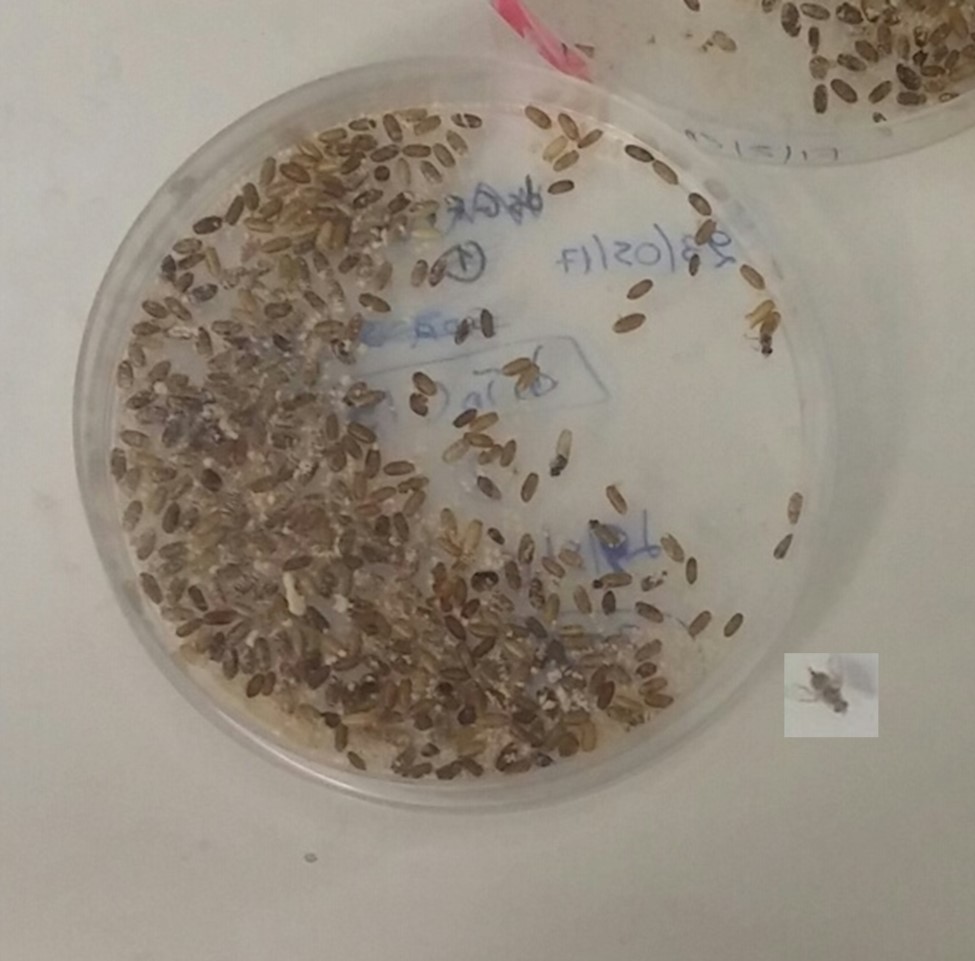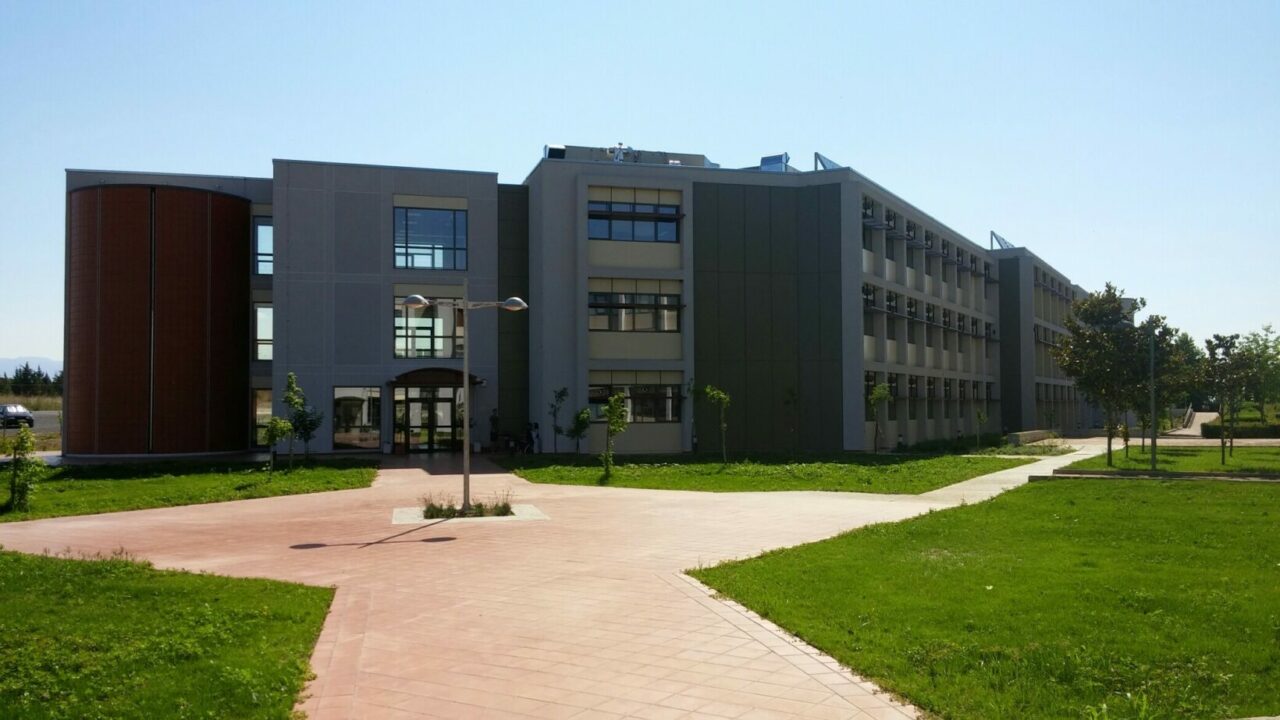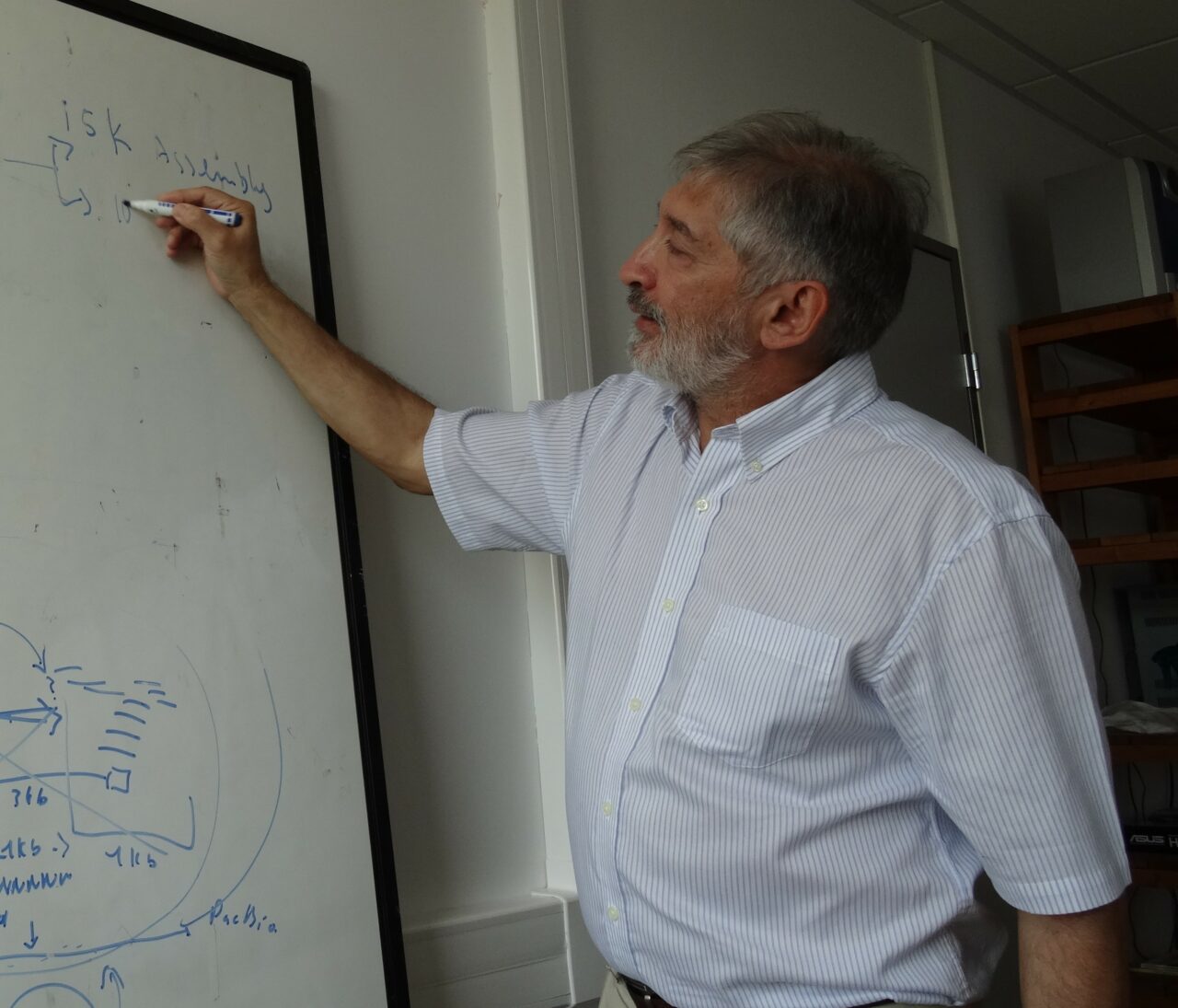Greek Diaspora Fellowship Program selects 30 Diaspora Fellows to conduct projects with Greek universities
Dr. Ioannis Ragoussis, Head of Genome Sciences at the McGill University and Genome quebec Innovation Centre and Associate Professor in the Department of Human Genetics at McGill University’s Faculty of Medicine was awarded a fellowship from the Greek Diaspora Fellowship Program that allowed him to travel to Greece from June 1 to July 7 to work with Professor Kostas Mathiopoulos, Department of Biotechnology and Biochemistry, University of Thessaly, Greece. The two were able to collaborate on postgraduate student supervision and conduct research on the genome of the olive fly (Bactrocera olae), a pest of major economic importance in the Mediterranean.

The collaborative project led to the first publication of a fully annotated genome of the olive fly which provides a tool for elucidating the genetic basis of the organism’s evolution, monophagy (it feeds exclusively on olive fruits), insecticide resistance and sex determination. A major focus is the application of new genomic technologies and their dissemination in Greek research centers. During his stay in Greece, Dr. Ragoussis also spent time giving seminars and teaching at the Institute of Molecular Biology and Biotechnology in Crete, Greece, supervised two postgraduate students and postdoctoral researchers and taught in Masters programs.
“The fellowship provided me with a unique opportunity to conduct research and teach students at a Greek University,” says Dr. Ragoussis of the experience. “I enjoyed the great talent pool represented by both graduate and postgraduate students.”
Dr. Ragoussis is one of thirty Greek- and Cypriot-born scholars hailing from a cross-section of twenty-eight prominent universities across North America who are traveling to Greece to conduct academic projects with their peers at Greek universities as part of the Greek Diaspora Fellowship Program. The scholars will work in areas that range from medical physics to curriculum co-development in clinical neurophysiology, and from Anglo-American Modernist Poetry to educational psychology. Thirteen Greek universities were selected to host the fellows for collaborative projects that meet specific needs at their institutions and in their communities, based on proposals submitted by faculty members and administrators at the Greek universities.
With this second round of Fellowships, the program has now selected a total of 51 U.S. and Canadian based academics to collaborate with universities throughout Greece to develop curricula, conduct research, and teach and mentor graduate students in priority areas identified by the Greek universities.

The Greek Diaspora Fellowship Program is designed to help avert Greece’s brain drain and develop long-term, mutually-beneficial collaborations between universities in Greece and the United States and Canada. Launched in 2016, the Fellowship Program is managed by the Institute of International Education in collaboration with the Fulbright Foundation in Greece, and funded by the Stavros Niarchos Foundation (SNF).
“One of the main goals of the Greek Diaspora Fellowship Program has been to engage productively one of Greece’s most important assets, its diasporic academic community,” said Stelios Vasilakis, Director of Programs and Strategic Initiatives at SNF. “The response and caliber of the Fellows selected for this first iteration of the Program, point to the existence of a critical mass of scholars that can contribute significantly to Greek Universities at a critical moment in modern Greek history. This is a collaboration that is mutually beneficial and carries the potential of long term impact and of changing the means of engagement between the motherland and its extensive diaspora.”
“The Stavros Niarchos Foundation’s generous support for these Fellowships demonstrates the Foundation’s commitment to expanding Greece’s human capital and investing in the country’s long-term economic recovery,” said Allan Goodman, President and CEO of the Institute of International Education.
August 14, 2017

